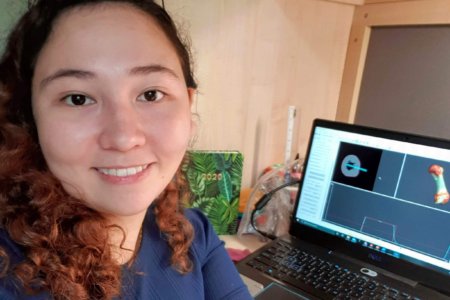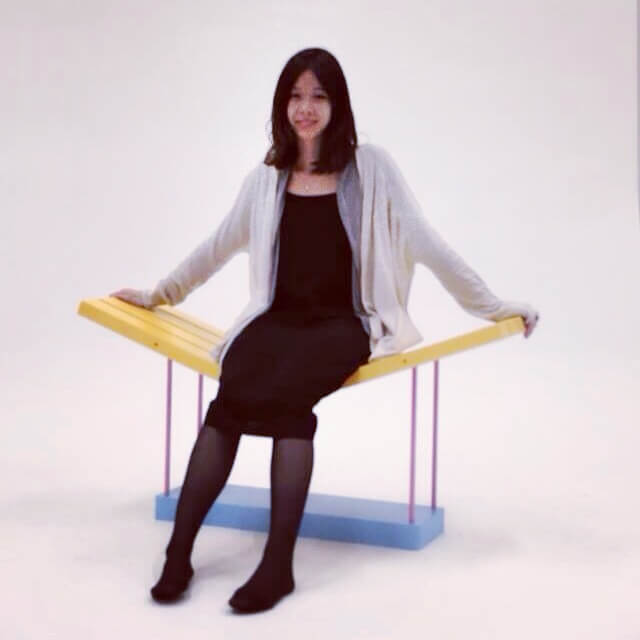
They are cards with fruits printed on them. Playing them, however — i.e. the hit board game GujuGuju — is a hoot. Players take turns flipping cards and guess whether a banana, a lemon, a strawberry or a pear will appear. It’s a race as the first to get rid of their cards will win.
The best board games entertain, distract and keep players active — GujuGuju ticks all these boxes. It’s deceptively simple, but addictive, which explains why this modern card game from Asia is now sold in 450 Barnes & Noble stores around the world and distributed around the world, including Japan, Australia, Canada and more.
The brains behind this hit is Central Saint Martins graduate Ariel Yi Chi Chang, one of this year’s Forbes 30 under 30 Asia icons.
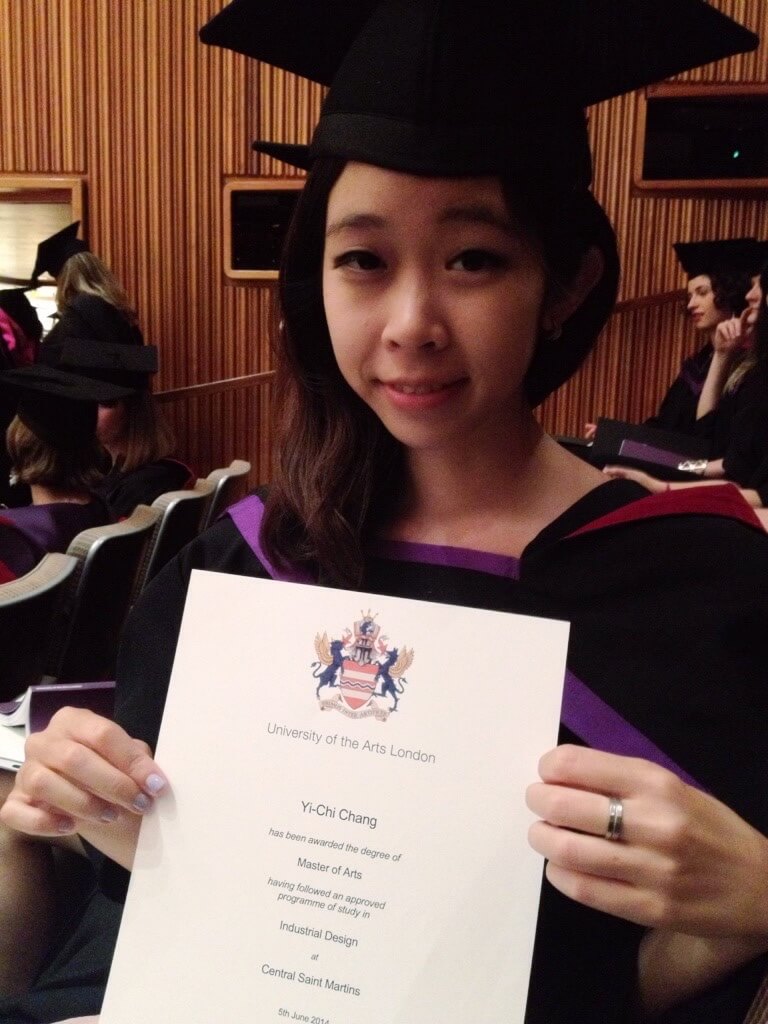
Graduating in product design and manufacture led to Chang founding her own business. Source: Ariel Chang
Following Guju Guju’s success, Chang started her own company in 2016: GeGe Design, which designs products for her parents’ company — GeGe Co. Ltd — one of the first to introduce board games to the Asian market. Last year, she published Nice to Meet You and founded GeGe Game Lab.
View this post on Instagram
Hailing from Taiwan, Chang’s education began in Shanghai for high school and her A Levels. She then pursued a Bachelor of Engineering in Product Design and Manufacture at the University of Nottingham in the UK, followed by a Master of Arts in Industrial Design at Central Saint Martins.
We caught up with Chang to learn more about her UK education and how it’s influenced her gaming career:
Why did you choose to get your degree in industrial design at Central Saint Martins?
I was told that Central Saint Martins is a uni looking for diversity which is what I wanted. My background revolved around math and physics while studying for my A Levels, but I was always interested in art and design.
Therefore, when applying to my uni, I emphasised my strengths and weaknesses that I hoped to learn from my peers and institution. If Central Saint Martins really was about diversity, I doubted a student like me (spending most of my life focused on math) could get into an art school. It was a life-changing experience that I am thankful for.
Do you think it would have made a difference if you studied at a local institution?
Yes, definitely. After graduating with my master’s, I came back to Taiwan and founded my own company. One of my jobs as an entrepreneur was to be a jury at unis. Here, I realised the design schools in Taiwan care more about the appearance of a prototype way more than the initial idea and process.
There’s no right or wrong, but I personally prefer focusing on the brainstorming development. I prefer agile prototyping which is probably the opposite of what a local school in Taiwan would have wanted. This is what Central Saint Martins encouraged during my studies there.
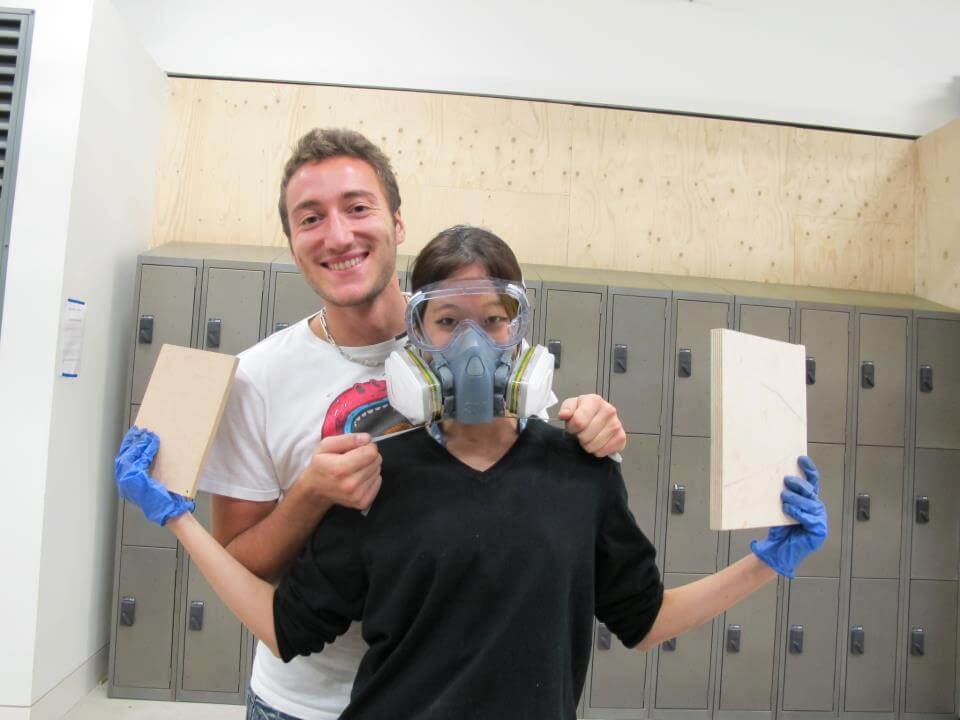
Chang pictured here with her course mate at Central Saint Martins. Source: Ariel Chang
Tell us more about your career trajectory since graduating.
I first worked in a company in London but the visa process took too long, so I came back to Taiwan and started my own business. My parents’ company is purely business, while mine focuses on the creative aspect.
Having graduated as a design major, it made more sense to me to create my own design company using board games as my starting resource. Since then, I’ve been on the list of Asia’s Forbes 30 under 30 2020 under the art category. I’ve also founded another organisation called GeGe Game Lab that aims to help the world with gaming.
How do you use the knowledge and skills gained in your uni experience in your current job role?
For my company, I started off as a game designer but no one taught me how to. Luckily enough, I studied in an Industrial Design course where our strength is the research methods, so at the beginning I simply applied what I learned from uni to gaming design. I just imagined using the same methods but to design games instead of products and it worked out well.
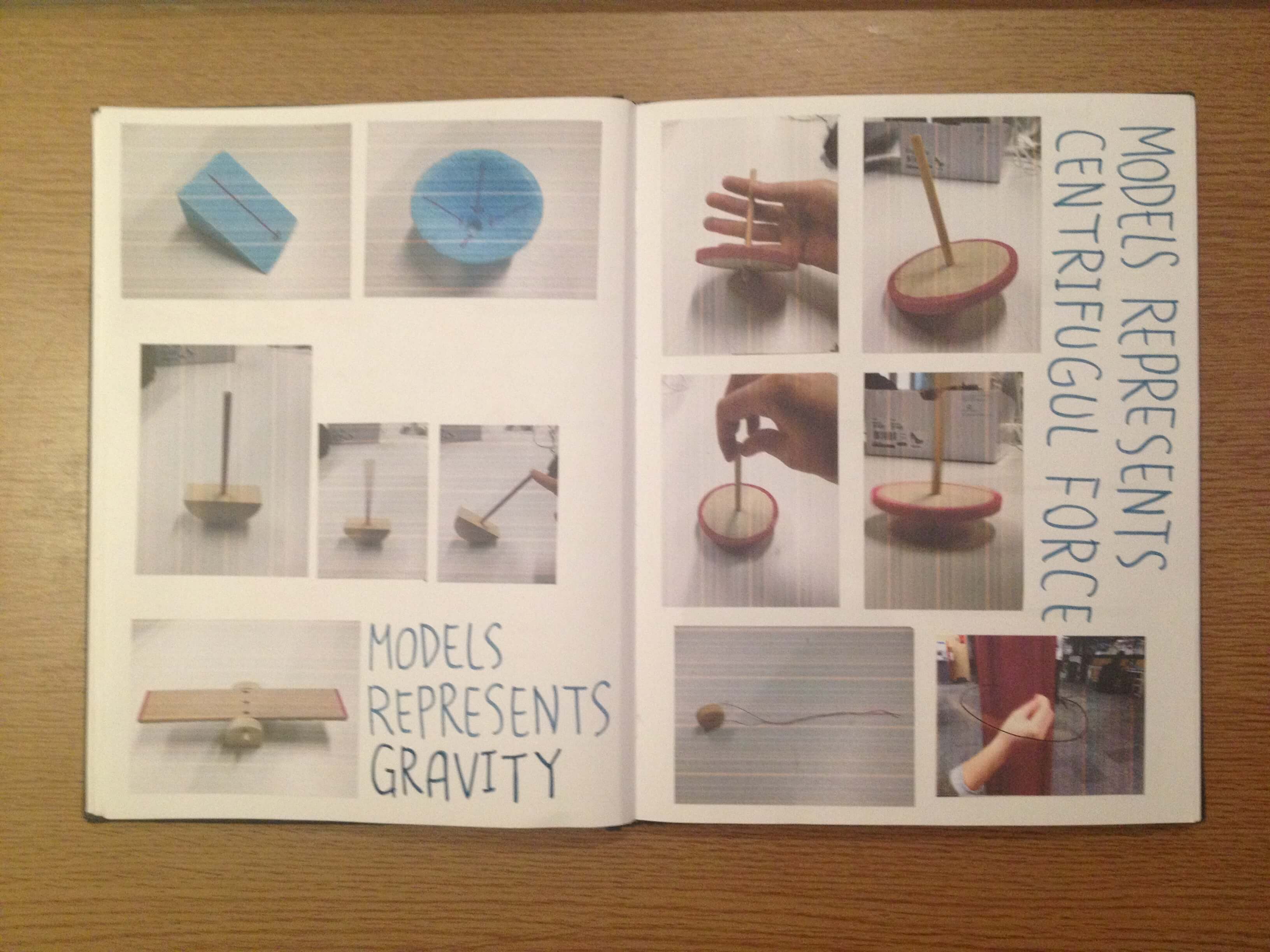
Chang’s final year project book. Source: Ariel Chang
What were the practical learning elements in your course?
While at uni, we used mapping to analyse our thinking about issues we were tackling. It was a basic practice, but when I applied it to gaming design, it became very essential. I’ve been teaching mapping ever since I found out how well it applies to gaming design and I believe it’s helped a lot of my students with their work.
What skills or knowledge do you wish you learned more during uni?
I can’t think of any. I learnt a lot at Central Saint Martins and the experience changed the way I think. Skills and knowledge are things we can pick up on our own, but culture and thinking is what that international environment can provide.
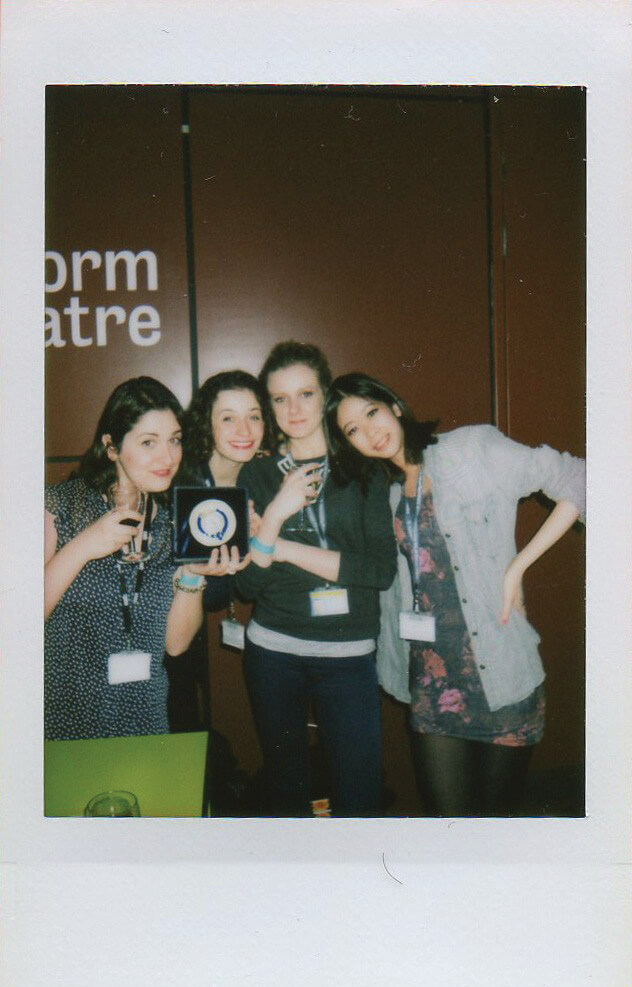
Chang thoroughly appreciates her time abroad at uni in the UK as it broadened her cultural perspective. Source: Ariel Chang
What advice do you have for international students who plan to enrol in the same course as yourself?
It’s life-changing and artistic. If you’re looking for something more practical involving actual design solving realistic problems, this course might not be for you. I don’t think it’s necessary to be solving real world problems while studying, the foundation of thinking is more important and it can be applied to life later on with more potential.
In 10 years, where would you like to be living and what would you like to be doing?
In 10 years, I’d like to stay in my hometown Taiwan as my family is here. Before these 10 years though, I’d like to visit MICA Game Lab for one year to teach and to learn. I’ve had the opportunity to be there as a resident designer but as the pandemic made that a challenge. If possible, I would like to go back to Central Saint Martins to teach about gaming.
What are your top three favourite things about London?
First, its diversity and craziness. I remember London streets during holidays were wild as you could wear anything without being judged. Also as a global citizen (I was born in Eindhoven, raised in Taipei and studied abroad) I kind of lost my identity but in London it was okay because everyone’s a world citizen there. Secondly, the museum, galleries and exhibitions and lastly, the Christmas decorations.
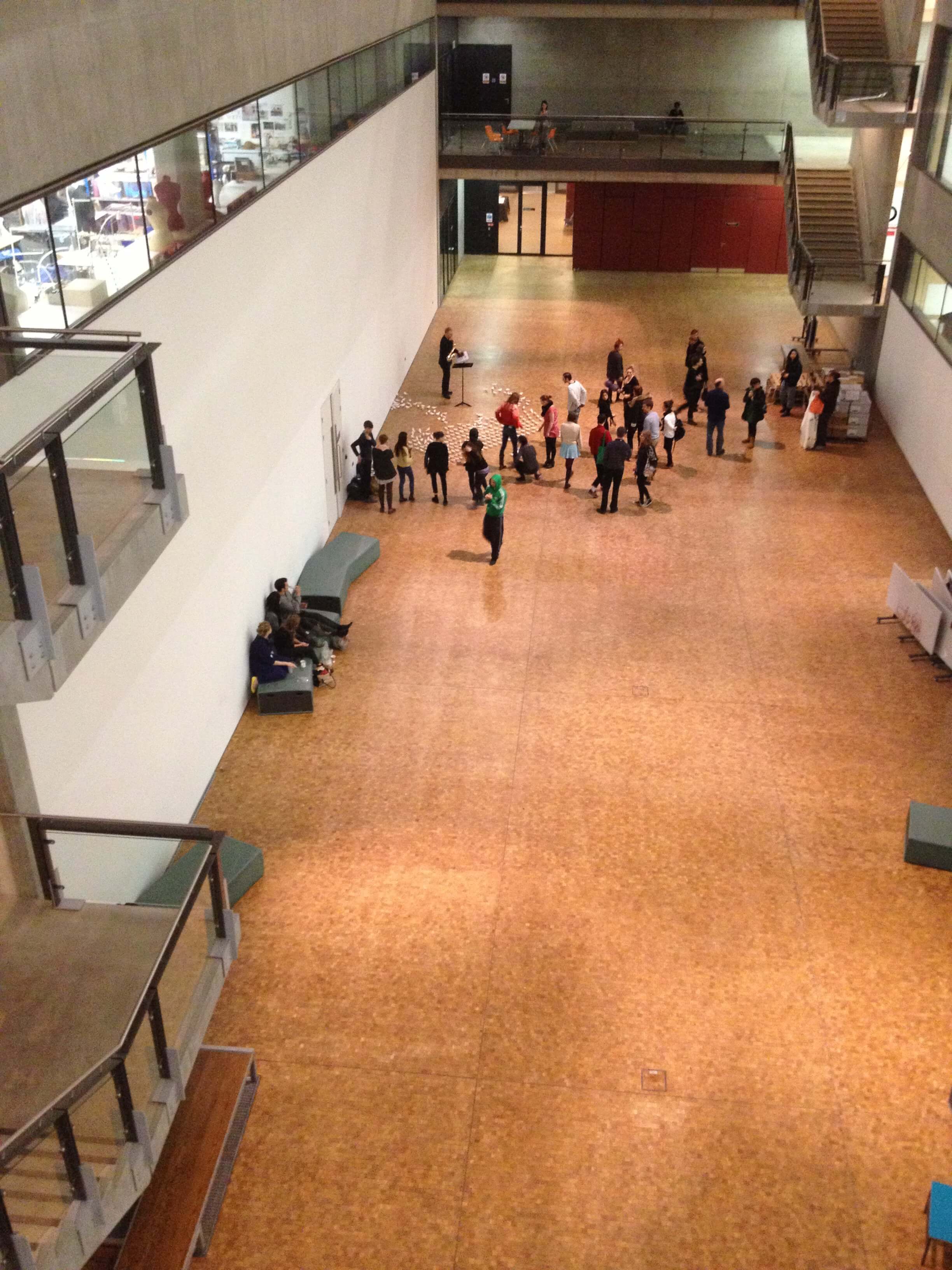
Central Saint Martins provided Chang with an international environment with lots to learn from. Source: Ariel Chang
What would you do with US$1 million?
I’d invest in GeGe Game Lab. I’ve gathered numerous volunteers to do gaming design for people in need (blind people, people with dementia, education in rural schools and so on) where we don’t charge them. But to keep the organisation running, we will need funding so this is where US$1 million would come in handy.









